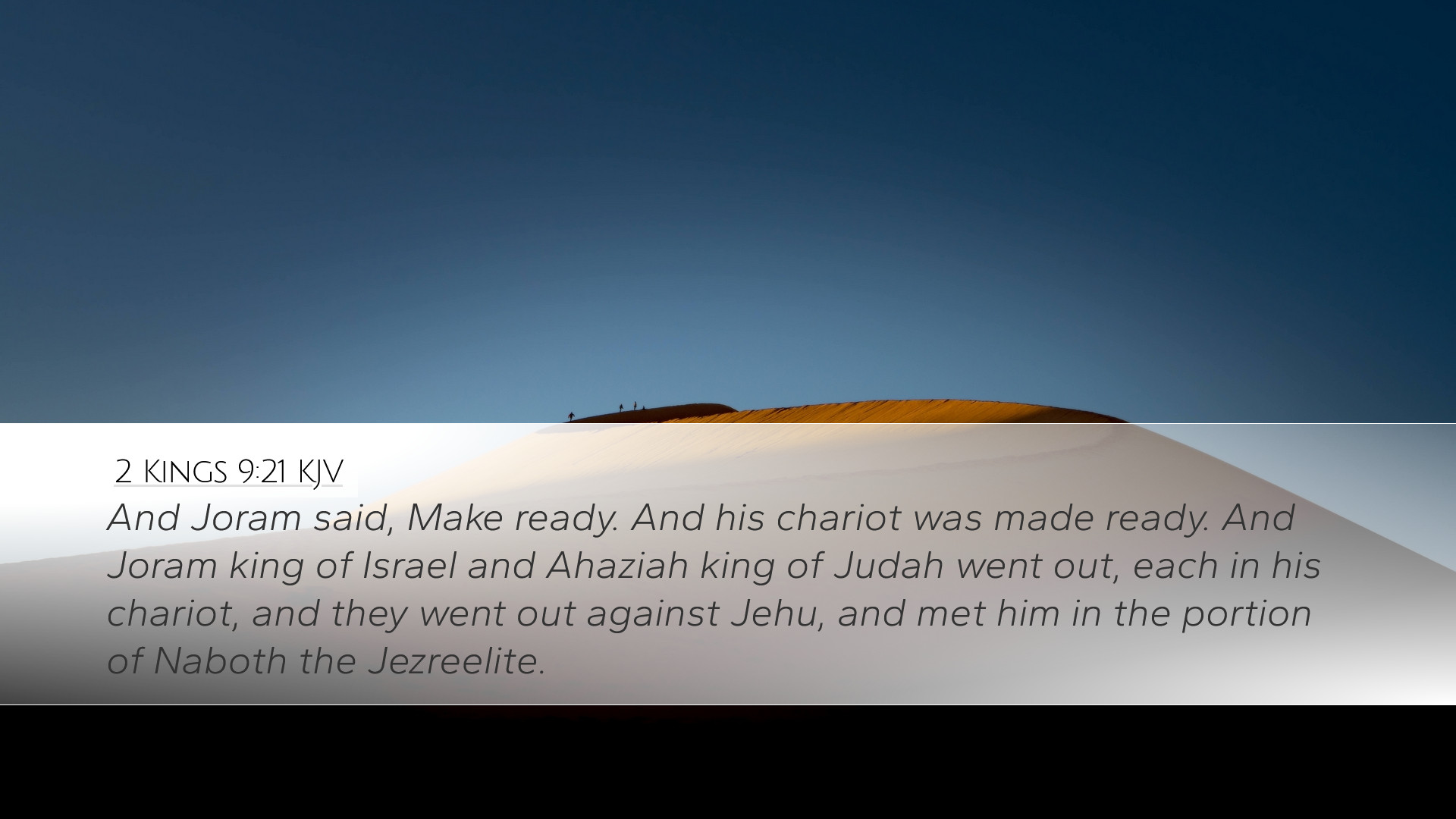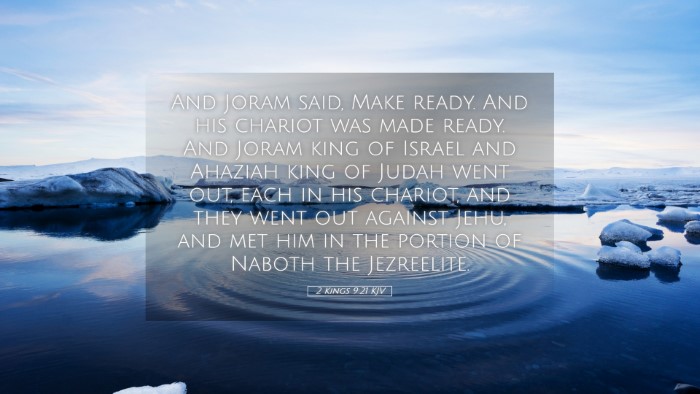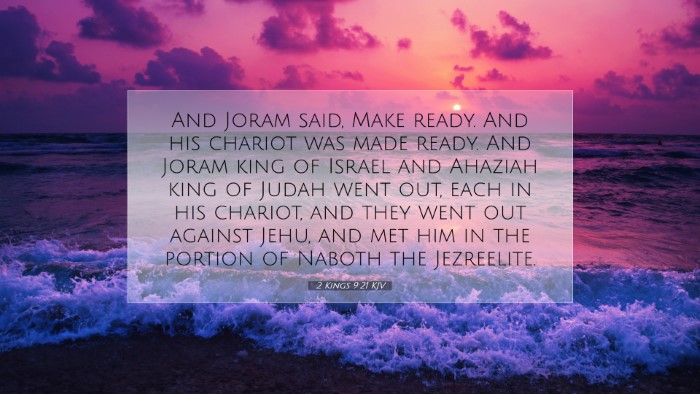Commentary on 2 Kings 9:21
In 2 Kings 9:21, the verse states: "And Joram said, Make ready. And his chariot was made ready. And Joram king of Israel and Ahaziah king of Judah went out, each in his chariot; and they went out to meet Jehu, and met him in the portion of Naboth the Jezreelite." This moment is pivotal, unleashing a cascade of events leading to the fulfillment of God's prophecy against Ahab's house.
Contextual Background
The context of this passage is deeply rooted in the narrative concerning Israel’s monarchy and the ruthless reign of Ahab and Jezebel. The mention of Naboth is crucial; it signifies the corrupt and idolatrous practices of the ruling house. The rebellion initiated by Jehu is a divine mandate against the sinful leadership of Israel.
Historical Significance
Matthew Henry elaborates on the historical setting preceding this confrontation. This encounter symbolizes God's judgment against the rulers who perpetuated injustice. The kings of Israel and Judah were essentially puppets under divine scrutiny, indicating that God’s plans cannot be thwarted even by the mightiest rulers.
Analysis of the Characters
- Joram (also known as Jehoram): The son of Ahab, embodying the legacy of wickedness inherited from his father. His immediate response to prepare for battle reveals a typical royal enthrallment to power, refusing to recognize the divine purpose behind Jehu’s uprising.
- Ahaziah: The king of Judah, showing complicity in the affairs of Israel. His alignment with Joram highlights the political entanglements of the two kingdoms, yet it also foreshadows his tragic end.
- Jehu: A man chosen by God to execute judgment. His military fervor represents the divine will, illustrating the theme that God can raise leaders from unexpected places to fulfill His plans.
Theological Considerations
Adam Clarke offers insight into the theological implications embedded in this verse. The preparation of chariots symbolizes readiness for confrontation, echoing the spiritual preparation that believers must undertake in their own lives against sin and apostasy. The confrontation between Jehu and the kings reflects the ultimate battle between good and evil, order and chaos.
Divine Sovereignty
There are significant themes of divine sovereignty and human agency at play in this verse. God’s sovereignty is evident in how He arranges the circumstances leading to Joram's meeting with Jehu. At the same time, the narrative emphasizes the accountability of the kings, suggesting that leaders are responsible for their actions.
Literary Elements
Commentators note the use of irony in this passage. Joram’s command, "Make ready," is poignant when considering that he is, in essence, preparing for his own downfall. The mention of Naboth serves as a literary callback to God’s prior judgment on Ahab, intertwining the themes of justice and retribution.
Implications for Today’s Believers
This passage carries significant lessons for modern believers. The readiness of Joram highlights the need for vigilance in spiritual matters. As students of Scripture, it serves as a reminder that God's judgment may come suddenly, and those in authority must heed His warnings and act righteously.
Reflection on Leadership
Pastors and leaders should reflect on the accountability they bear. The ultimate fate of Joram and Ahaziah exemplifies the dire consequences of unfaithfulness to God’s commandments. Leaders are to be shepherds of their communities, guarding against the influences that led Israel astray.
Conclusion
In summary, 2 Kings 9:21 is a powerful verse that encapsulates the themes of judgment, responsibility, and divine sovereignty. As we study this text, we are reminded that all leaders, whether in biblical times or today, stand under the watchful eye of God, and His purposes will ultimately prevail.


